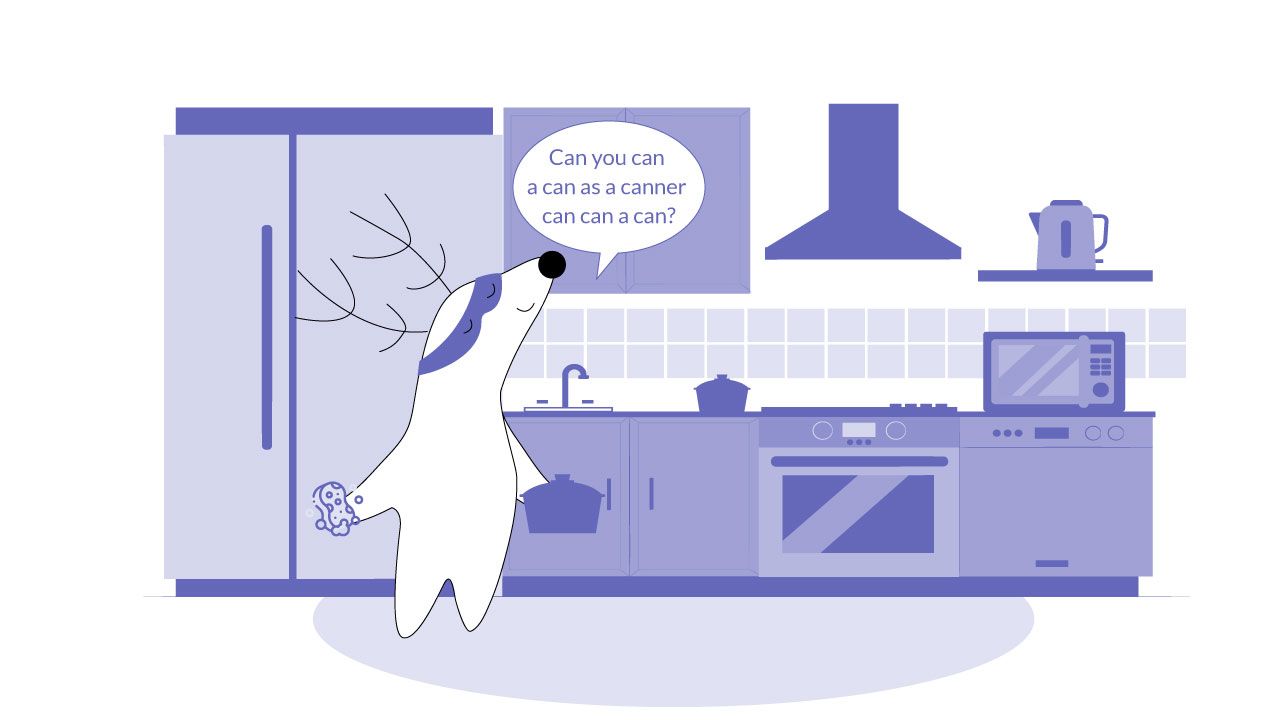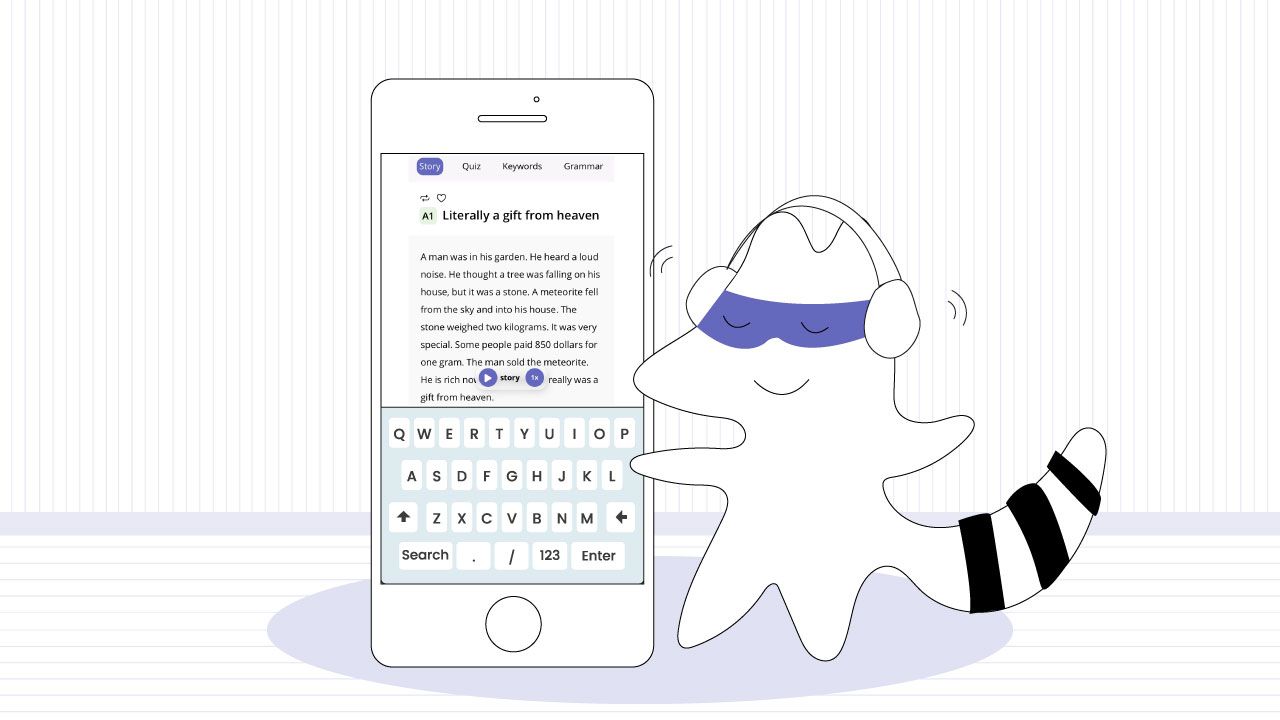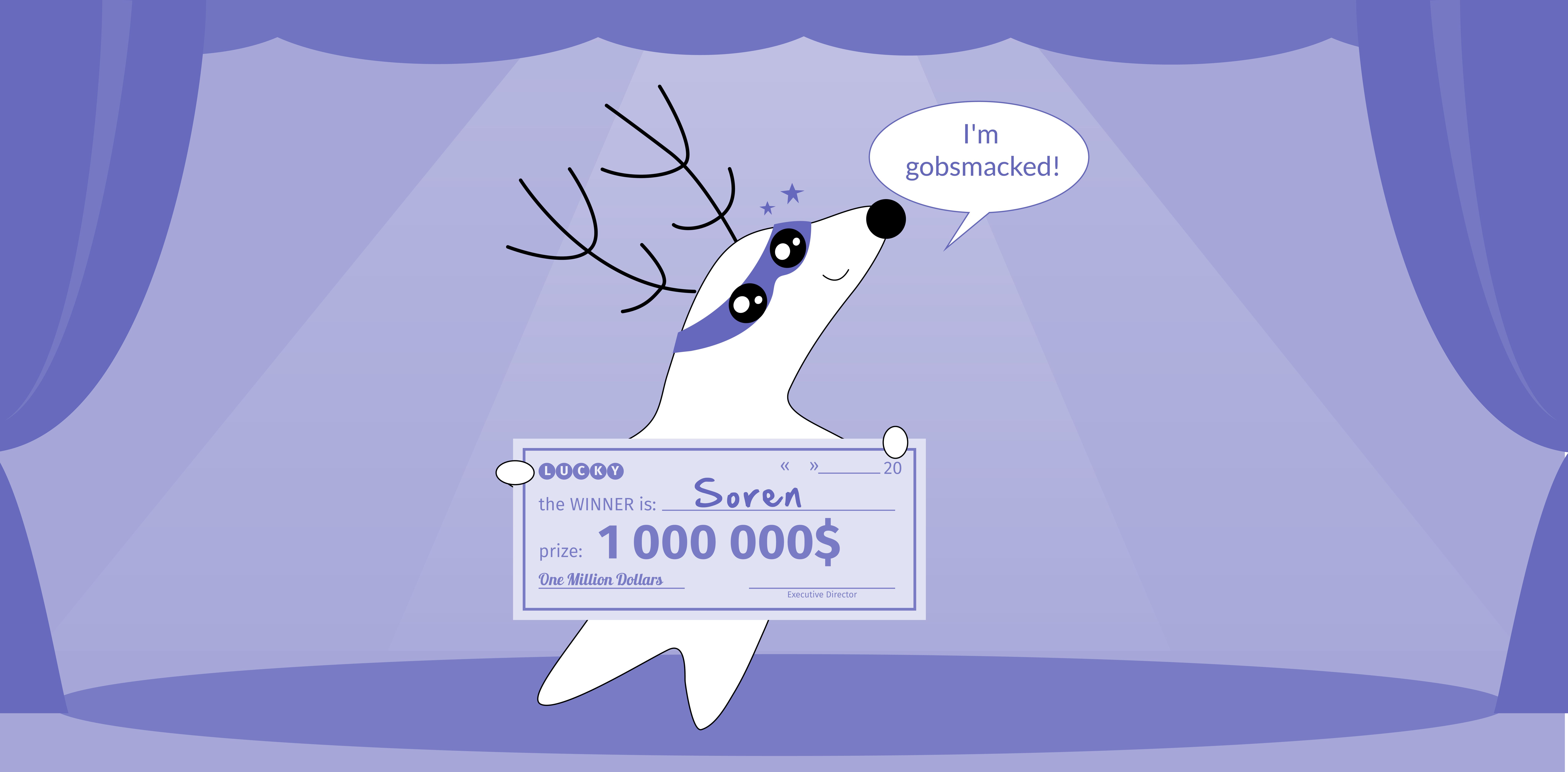
Pronunciation is one of the most important aspects of learning a foreign language. English has many sounds that are not found in other languages, so it can be difficult for beginning English learners to pronounce words correctly without any guidance.
Furthermore, English pronunciation can be pretty tricky, meaning that what you see isn't always what you hear. This can make picking up the correct pronunciation even more difficult. However, working on your English pronunciation skills is important, as it will allow you to avoid confusion and become more confident about talking to native English speakers.
In this article, we will explore some tips and tricks to practice English pronunciation as well as some resources that can help you get started.
Learn English with Langster
Decide What You Want to Sound Like
The English language is famous for having a multitude of different accents from all around the globe – in England alone, there are dozens of different regional accents! The same applies to the US – it’s no secret that people from Texas will sound different from New Yorkers while pronouncing the same English words.
So, the first step in modeling your English pronunciation is deciding what kind of accent you would like to have. If you're unsure what kind of accent you want, think about which region you would like to live in or which English-speaking country you would like to visit.
Do you want to sound like a Hollywood actor, or maybe you’ve just got a job offer from a company with headquarters in Australia? Choose the one that will make the most sense for your future communications in English.
Depending on the English accent you decide to study, you can focus on the sounds that make it unique. Notice the intonation, rhythm, and stress patterns of that particular accent, and try to imitate them when you practice.
For instance, if you're hoping to acquire an American English pronunciation, you'll need to put work into mastering the schwa sound and the two L sounds, which are both unique to American English.
On the other hand, if you're interested in learning a British accent, you'll need to focus on the Received Pronunciation (RP) accent – the standard form of British English.
You don't have to sound exactly like a native speaker in order to be understood – many non-native English speakers have their own unique accents that are perfectly comprehensible to others. However, if you're aiming for complete fluency, it's best to work on your pronunciation until you lose any touch of your native language in your English.
Start with the Basic English Pronunciation Rules
Now that you know which accent you would like to acquire, it's time to start working on the basics. This means learning the individual sounds of English, as well as the basic rules of stress and intonation.
If you're starting from scratch, it's best to begin by learning the 44 phonemes – individual sounds – of English. This can seem like a daunting task, but there are plenty of resources available to help you – for instance, there are multiple YouTube channels explaining the International Phonetic Alphabet (IPA) available online.
In addition to learning English phonetics, you'll also need to become familiar with the rules of stress and intonation. These are two important aspects of pronunciation that will affect how clear and comprehensible you sound when speaking English.
Stress refers to the emphasis placed on certain syllables in a word or phrase, while intonation is the rise and fall of your voice when speaking. Both of these factors play a role in communication, so it's important to be aware of them when you pronounce English words.
Familiarizing yourself with the basics of correct English pronunciation will help you get a feel for how the sounds are produced, as well as how they combine to form words and sentences. Now, you can move to practicing your spoken English.

How to Improve Your Pronunciation on Your Own?
There are a few things to keep in mind when practicing your English pronunciation. First, be sure to focus on the quality of your sound, not just the quantity. This means that you should pay attention to how clearly you're articulating each sound as well as whether or not you're using the correct intonation.
It's also important to practice speaking slowly at first. This will help you avoid making mistakes and allow you to focus on producing each sound correctly. Once you're more comfortable with the individual consonant and vowel sounds, you can start speaking at your natural pace.
Alternatively, you can record yourself speaking English, then listen back to identify any errors you may have made. This is a great way to catch mistakes that you might not have noticed while speaking.
Other than that, you can try tongue twisters – these are silly phrases that are designed to be difficult to pronounce, and they can help you practice the individual sounds of English and improve your diction. There are plenty of tongue twisters available online, so find some that focus on the sounds you're having trouble with, and give them a try.

Read with an Audiobook On
One of the best ways to practice your English pronunciation is to listen to native speakers and imitate their sounds. This can be difficult if you don't have many opportunities to interact with English speakers in your everyday life.
Fortunately, there are plenty of resources available that can help you get exposure to correct pronunciation. One great way to practice is to read books in English and listen to audiobooks narrated by native speakers simultaneously.
Reading, essentially, is the best way to build up your vocabulary and get a better feeling for the English language. Here, you can check our selection of the best English books for beginning language learners.
When paired with an audiobook, it helps you get used to hearing the correct pronunciation of words and phrases, as well as the rhythm and flow of spoken English. Besides, having the text in front of you allows you to keep an eye on the words’ spelling. You can find a wide variety of audiobooks online on platforms like Audible or iTunes.
Alternatively, don’t neglect watching TV shows and movies in English with English subtitles – anything that will help you get more exposure to the way native speakers use the language. The more you listen, the better your English pronunciation will become.
Listen to Podcasts in English
Another great way to practice your English pronunciation is to listen to podcasts. This can be a more engaging activity than simply listening to an audiobook, as you get to follow along with a conversation between two or more people.
Podcasts are also generally shorter than audiobooks, so they're easier to fit into a busy schedule. There are a variety of podcasts available online on platforms like iTunes, SoundCloud, or Spotify.
When choosing a podcast to listen to, look for something that's interesting to you and at your level. It's also important to find a show with good production values so that you can understand the speakers clearly, especially when it comes to difficult words.
If you don’t know where to start looking, consider choosing something related to the industry you work in. This way, you can not only boost your overall English skills but will also enrich your professional vocabulary. Other than that, make sure to check our separate blog post on the best podcasts that help you learn English in a fun way.
Once you've found a podcast you like, make sure to listen carefully, and imitate the speakers pronouncing words. With enough practice, you'll achieve a good pronunciation level in no time!

Practice with a Native Speaker or Tutor
If you want to get immediate feedback on your English pronunciation, the best way to do it is to practice with a native speaker or tutor. This can be someone you know personally or someone you connect with online.
When practicing with a native English speaker, it's important to find someone who's patient and willing to help you learn. They should also be able to correct your mistakes in a constructive way.
If you don't have any friends or family members who speak English, there are plenty of online options available. For example, you can connect with a tutor on language learning platforms. Such sites allow you to find tutors from all over the world who can not only help you improve your pronunciation but also explain English grammar or check your reading comprehension.
When practicing with an English teacher, make sure to have a conversation about your goals for the session. This way, they can help you focus on the areas where you need the most improvement during your English lessons.
In addition, try to find a tutor who uses video chat, so that you can see their mouth movements as they speak. This will help you learn the correct way to form the shapes needed to produce certain sounds.
Lastly, don't be afraid to make mistakes! The more you practice, the better your pronunciation will become. So, go out there, and start talking to native speakers today!
Use a Pronunciation App
If you want to practice your English pronunciation on your own time, consider downloading a pronunciation app. There are a variety of apps available that can help you improve your skills, and they're generally very affordable (or even free).
When choosing an app, look for something that offers a variety of exercises and games to keep you engaged. The app should also allow you to track your progress, so that you can see how far you've come.
ELSA Speak is perhaps the best-known pronunciation app on the market. It uses advanced speech recognition technology to help you identify and correct your mistakes. The app also offers a variety of games and challenges to keep you engaged, and it provides detailed progress reports so that you can track your improvement.
Another great option is the Pronunciation Pro app. This app includes a series of video lessons that teach you how to produce different sounds in English. It also allows you to record yourself speaking, so that you can compare your pronunciation to that of a native speaker.
Finally, don’t forget to download Langster and learn English with stories! Our app turns bite-size stories into fun and engaging lessons, provides grammar explanations, and, most importantly – audio from native English speakers to help you pick up proper phrasing.
No matter which app you choose, make sure to set aside some time each day to pronounce words in English.
The Bottom Line

Pronunciation is one of the most important aspects of learning a foreign language, and your English learning journey is no exception. If you want to improve your pronunciation skills, be sure to practice on a regular basis with a native speaker, a tutor or a pronunciation app.
Other than that, you can read to the accompaniment of audiobooks, exercise with tongue twisters, or listen to podcasts in English. With enough effort, you'll be speaking like a native in no time!









